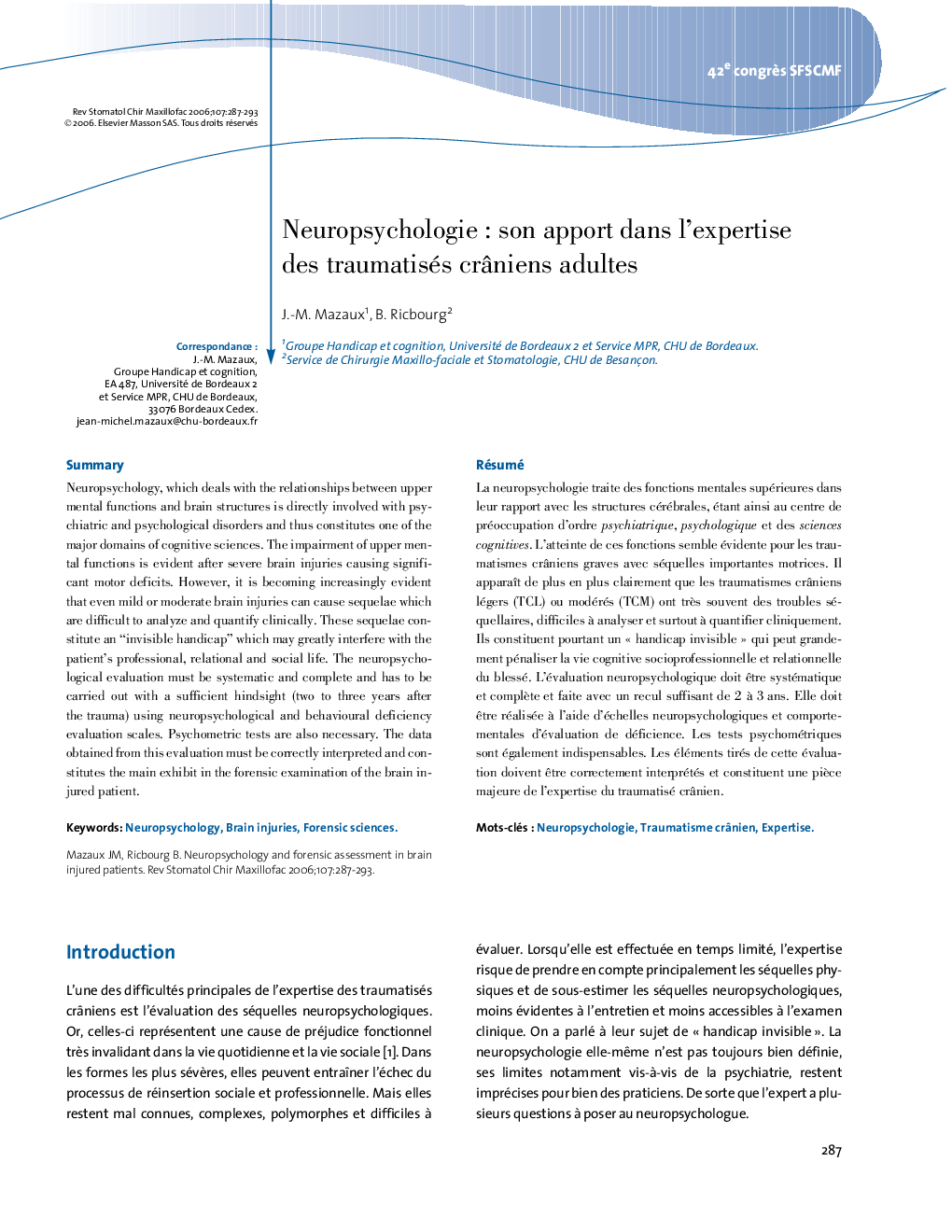| Article ID | Journal | Published Year | Pages | File Type |
|---|---|---|---|---|
| 3174799 | Revue de Stomatologie et de Chirurgie Maxillo-faciale | 2006 | 7 Pages |
Abstract
Neuropsychology, which deals with the relationships between upper mental functions and brain structures is directly involved with psychiatric and psychological disorders and thus constitutes one of the major domains of cognitive sciences. The impairment of upper mental functions is evident after severe brain injuries causing significant motor deficits. However, it is becoming increasingly evident that even mild or moderate brain injuries can cause sequelae which are difficult to analyze and quantify clinically. These sequelae constitute an “invisible handicap“ which may greatly interfere with the patient's professional, relational and social life. The neuropsychological evaluation must be systematic and complete and has to be carried out with a sufficient hindsight (two to three years after the trauma) using neuropsychological and behavioural deficiency evaluation scales. Psychometric tests are also necessary. The data obtained from this evaluation must be correctly interpreted and constitutes the main exhibit in the forensic examination of the brain injured patient.
Related Topics
Health Sciences
Medicine and Dentistry
Dentistry, Oral Surgery and Medicine
Authors
J.-M. Mazaux, B. Ricbourg,
